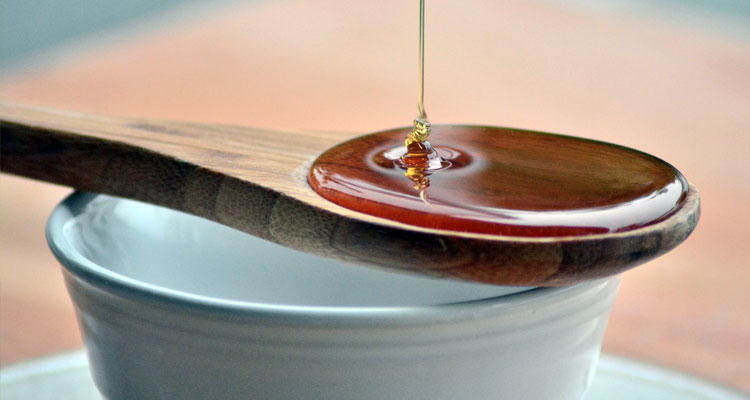Manuka honey, a unique type of honey native to New Zealand, has gained considerable attention for its possible health benefits. Produced by bees that feed on the nectar of the Manuka bush (Leptospermum scoparium), this honey stands out due to its distinctive properties, which include a higher concentration of Methylglyoxal compared to regular honey. This compound, along with other components of Manuka honey, has exhibited potential therapeutic effects, such as antimicrobial and anti-inflammatory activities.
Scientific research has revealed multiple benefits to using Manuka honey in place of conventional treatments. Here, we explore these advantages and the science that supports them.
1. Preventing Biofilm Formation
The formation of biofilms is a protective strategy bacteria employ, cocooning themselves in a slimy coat to shield them from harmful agents such as antibiotics and disinfectants. Manuka honey has been shown to be highly effective in preventing biofilm formation and facilitating the eradication of several harmful bacterial species.
2. Treating Staph Infections
Research has shown that Manuka honey has a bactericidal effect on both Methicillin-resistant Staphylococcus aureus (MRSA) and Methicillin-sensitive S. aureus (MSSA), making it potentially effective against staph infections. This property could help combat antibiotic resistance, improving patient outcomes.
3. Wound Treatment and Tissue Regeneration
Manuka honey has shown potential in treating chronic non-healing discharging external wounds. Besides offering an acidic environment favoring wound healing and high sugar osmolarity for antibacterial action, it generates hydrogen peroxide via the glucose oxidase enzyme. This property endows it with the ability to control infections, promote tissue growth, and repair wounds. Moreover, it has been found to maintain a moist wound environment and assist in debriding wounds.
The absence of negative side effects like pain, allergy, inflammation, or swelling makes it a potentially safe topical treatment for wounds.
4. Relief From Sore Throats and Coughs
Sore throats and coughs arise from varied causes, including bacteria and viruses. However, incorporating Manuka honey into your regimen could alleviate these issues. Research indicates a decrease in Streptococcus mutans, a bacterium often causing sore throats, amongst those who regularly consume Manuka honey. As an alternative home remedy, you may consider mixing Manuka honey into water or tea for swift, effective relief.
Manuka honey may offer relief from coughs caused by upper respiratory tract infections or URTIs, which are common bacterial or viral infections. Additionally, Manuka honey has been reported to help manage bronchitis symptoms.
5. Treating Digestive Ailments
Traditionally, honey has been used to treat various digestive ailments like diarrhea and constipation. Manuka honey acts as a “prebiotic”—boosting populations of probiotic bacteria in the intestinal tract (such as Lactobacillus and Bifidobacteria), which could alleviate symptoms caused by inflammatory bowel diseases such as ulcerative colitis.
6. Preventing Gastric Ulcer Formation
Manuka honey is rich in flavonoids that may prevent gastric ulcer formation through antisecretory and antioxidant mechanisms. Numerous studies have highlighted the antiulcerogenic properties of flavonoids, supporting the potential benefits of Manuka honey in protecting the gastrointestinal tract.
7. Potential Treatment for Blepharitis
Manuka honey contains a higher concentration of methylglyoxal compared to regular honey and has been considered as a potential treatment option for Blepharitis, an inflammation of the eyelids. However, more research is needed to confirm the effectiveness of Manuka honey for this condition.
8. Deodorization of Wounds
Studies have discovered that Manuka honey can deodorize a wide range of acute and chronic wounds, such as abscesses, diabetic foot ulcers, and leg ulcers. Researchers attribute this deodorizing effect to the antibacterial action of Manuka honey against infection-causing bacteria.
9. Possible Treatment for Inflammatory Skin Conditions
Manuka honey, which has antimicrobial properties, is being studied for its effect on other skin disorders. Studies suggest that honey could influence the immune system of the skin and thus be used to treat a wider range of skin disorders—including rosacea and acne.
10. Potential Remedy for Dyspepsia
Manuka honey’s antibacterial properties are believed to contribute to its traditional use as a remedy for dyspepsia. The therapeutic efficacy of Manuka honey in treating dyspepsia is thought to be linked to its ability to combat Helicobacter pylori (H. pylori), a bacterium often responsible for dyspepsia.
11. Management of Cystic fibrosis
Mycobacterium abscessus, a rapidly growing non-tuberculous mycobacteria, poses significant concerns due to its ability to cause infections of the skin, soft tissue, and lungs. It is particularly concerning for individuals with underlying respiratory conditions like cystic fibrosis or bronchiectasis. Research has shown that when Manuka honey is combined with azithromycin, enhanced growth inhibition of M. abscessus occurs. Researchers have concluded that this combination may be important in treating upper respiratory infections, especially for those with cystic fibrosis.
12. Promotion of Oral Health
Studies have found that Manuka honey can inhibit the growth of harmful oral bacteria associated with plaque formation and tooth decay. Specifically, Manuka honey’s high antibacterial activity has proven effective at inhibiting bacteria like Porphyromonas gingivalis and Aggregatibacter actinomycetemcomitans.
Safety Aspects to Remember When Using Manuka Honey
While Manuka honey may offer a range of health benefits, it is essential to approach its use cautiously. Consult with a healthcare professional before using it as a treatment or supplement, especially if you have any pre-existing conditions, or allergies, or are taking medications. Additionally, be sure to select a high-quality product from a reputable source to ensure you are consuming genuine Manuka honey.


